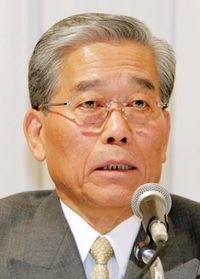In a significant corporate move, Fuji Television is preparing to implement measures aimed at preventing the recurrence of a recent scandal involving former talent Masahiro Nakai. The actions come in the wake of an investigation report from a third-party committee, expected to be submitted later this month, March 2025.
The controversy centers around Nakai's alleged misconduct, which has sparked public and internal scrutiny of the network's governance protocols. Fuji Television, in response, is keen to address these concerns head-on to mitigate any future incidents.
At the heart of the corporate governance discussions is Hisashi Hieda, the Senior Managing Director of Fuji Television, whose long tenure—spanning over 40 years—has raised eyebrows. Experts within the industry are now pointing to the potential drawbacks of such enduring leadership, arguing that Hieda's prolonged influence may be stifling necessary reforms.
According to industry experts, there are calls for a renewal of the board of directors to invigorate the company structure and ensure that modern governance practices are upheld. This advocacy for change reflects a broader trend among corporations in Japan, where outdated management practices often linger long past their usefulness.
The anticipated report from the third-party committee is expected to yield recommendations that will include a set of concrete actions tailored to prevent similar issues in the future. These measures aim not only to strengthen internal accountability but also to restore public confidence in Fuji Television as a reputable media entity.
The timing of these developments is critical, coinciding with an era where transparency and corporate responsibility are being heavily scrutinized. As the media landscape evolves, companies like Fuji Television must adapt to maintain their credibility in the eyes of the public.
Public interest in this story has peaked, with many wondering how Fuji Television plans to reshape its corporate governance. As the report's release draws closer, the management is under increasing pressure to provide clear and effective remedies that address the issues raised.
Moving forward, it is likely that stakeholders within the company will closely monitor the outcome of the investigation and subsequent recommendations. The importance of proactive governance practices in industry cannot be overstated, as they play a critical role in protecting an organization's reputation and ensuring compliance with ethical standards.
In summary, Fuji Television is taking steps to address leadership concerns exacerbated by the recent scandal involving Masahiro Nakai. The upcoming third-party report could pave the way for significant reforms within the company, signaling a shift towards more modern corporate governance practices.
As the media is evolving rapidly, with new challenges emerging daily, Fuji Television's response to this situation will be closely watched. Stakeholders and viewers alike are eager to see whether the company can balance its historical strengths with the need for progressive change.




